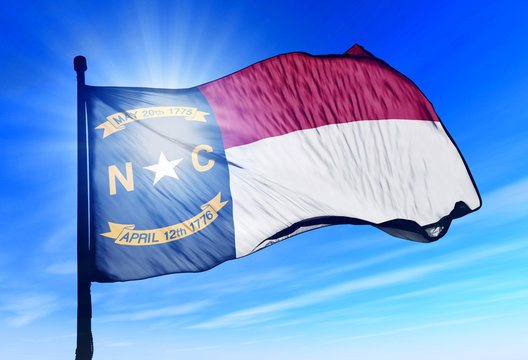
Commemorating 250 Years: The Birth of North Carolina’s Independence
By Robbie Perdue
While May 20th may not be a formal holiday in North Carolina, it holds deep historical significance for the state and for the nation. The date marks the anniversary of the Mecklenburg Declaration of Independence, an early assertion of American independence from Great Britain. This date is boldly displayed on the state flag, alongside another pivotal date: April 12, 1776, which commemorates the Halifax Resolves. Together, these dates embody North Carolina’s key role in the American Revolution and the push for independence.
The Mecklenburg Declaration of Independence: A Bold Stand
On May 20, 1775, a group of patriots in Mecklenburg County, North Carolina, took a bold step in defiance of British rule. They gathered at the courthouse in Charlotte and signed the Mecklenburg Declaration of Independence, declaring that the colonies should separate from Great Britain and form their own government. While the historical accuracy of this declaration has been debated—some historians argue that the document may have been a product of later revision—it nevertheless represents an early expression of the desire for independence from Britain.
At a time when the rest of the American colonies were still under British rule, the Mecklenburg Declaration served as a clear and courageous statement that North Carolina was ready to break free. Though the formal declaration of independence would not come until the Continental Congress issued the Declaration of Independence in 1776, the actions taken in Mecklenburg were an early precursor to the larger movement that would sweep across the colonies.
The Halifax Resolves: North Carolina Leads the Charge
The second date on North Carolina’s state flag, April 12, 1776, commemorates the Halifax Resolves, a significant step in the push for independence. This resolution, adopted by the North Carolina Provincial Congress at Halifax, marked the moment when North Carolina became the first colony to authorize its delegates to vote for independence from Britain. The Halifax Resolves paved the way for North Carolina’s delegation to the Continental Congress to cast its vote in favor of separation from Great Britain, culminating in the Declaration of Independence that would be issued later that year.
In essence, the Halifax Resolves set the stage for the national break from Britain. It was the first formalized commitment by a colony to support independence. North Carolina’s action was crucial in uniting the colonies toward the singular goal of independence, and it is often overlooked in broader national narratives, despite its foundational importance.
The Flag: A Reflection of North Carolina’s Revolutionary Spirit
The North Carolina state flag proudly bears both of these key dates—May 20, 1775, and April 12, 1776—serving as a constant reminder of the state’s pivotal role in the American Revolution. The flag’s design features a blue union with two dates in the upper left corner, one commemorating the Mecklenburg Declaration of Independence and the other marking the Halifax Resolves. These dates symbolize North Carolina’s commitment to the cause of independence long before the Declaration of Independence was signed.
While May 20th is not a state-recognized holiday, it deserves recognition for its profound historical importance. The spirit of defiance that characterized the Mecklenburg Declaration continues to resonate today, as does the leadership demonstrated by North Carolina in the adoption of the Halifax Resolves. These moments paved the way for the birth of a nation founded on principles of liberty and self-governance.
A Quiet Commemoration with Lasting Impact
Even though the anniversary of the Mecklenburg Declaration of Independence and the Halifax Resolves may pass without fanfare, it’s a day worth reflecting on for all North Carolinians. These events were critical in shaping the state’s revolutionary spirit and establishing its role in the broader fight for American independence. The next time you gaze upon the North Carolina state flag, take a moment to appreciate the history it represents and the bravery of those who stood up for independence in the face of great odds.
As we honor these lesser-known chapters of history, it’s a reminder that the push for independence was a collective effort, with states like North Carolina leading the charge at a crucial time. May 20, 1775, may not be a recognized holiday, but it marks a pivotal moment in the story of American freedom—one worth remembering.
Robbie Perdue
is a native North Carolinian who enjoys cooking, butchery, and is passionate about all things BBQ. He straddles two worlds as an IT professional and a farmer who loves heritage livestock and heirloom vegetables. His perfect day would be hunting deer, dove, or ducks then babysitting his smoker while watching the sunset over the blackwater of Lake Waccamaw.


You May Also Like

Tubb’s Shrimp & Fish Co.
October 18, 2019
Giant Peacocks on the Fly in the Amazon Basin
July 10, 2020
